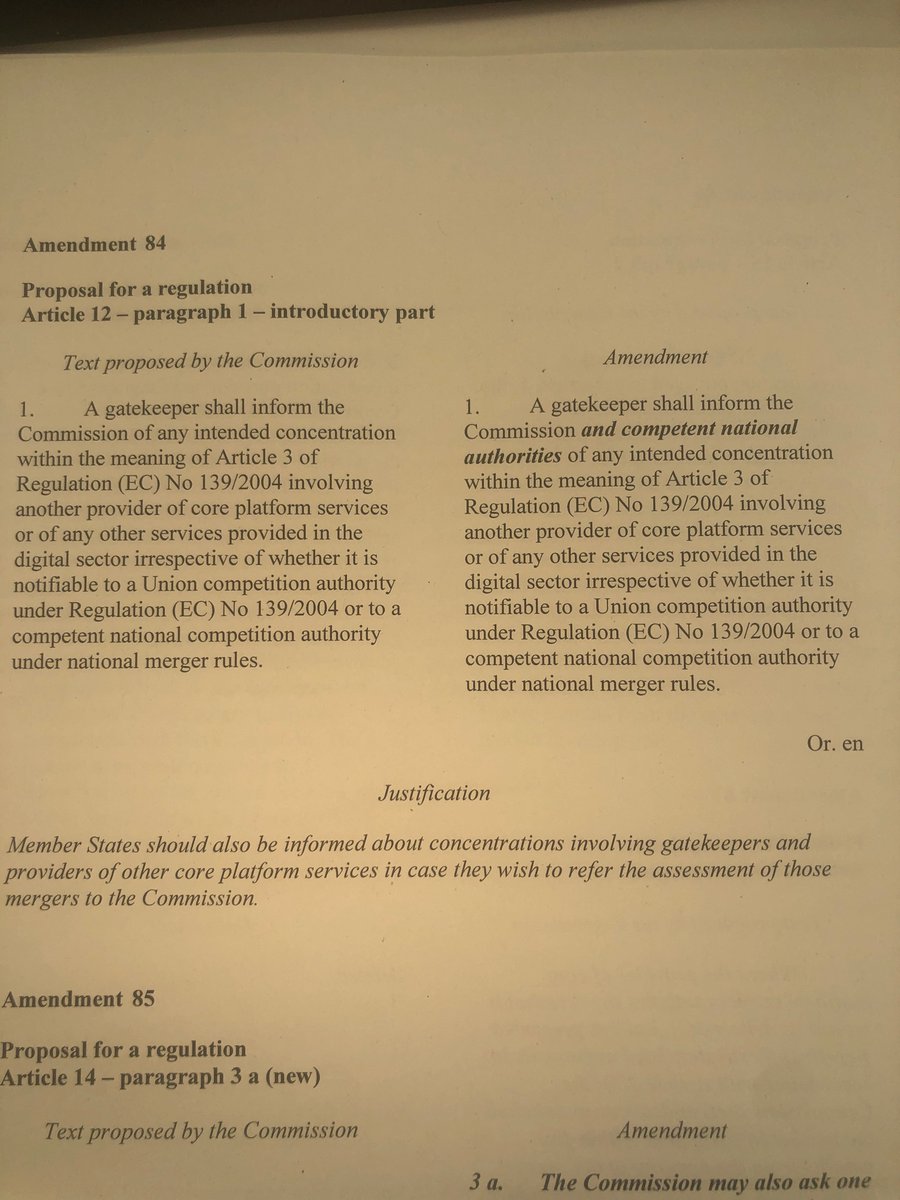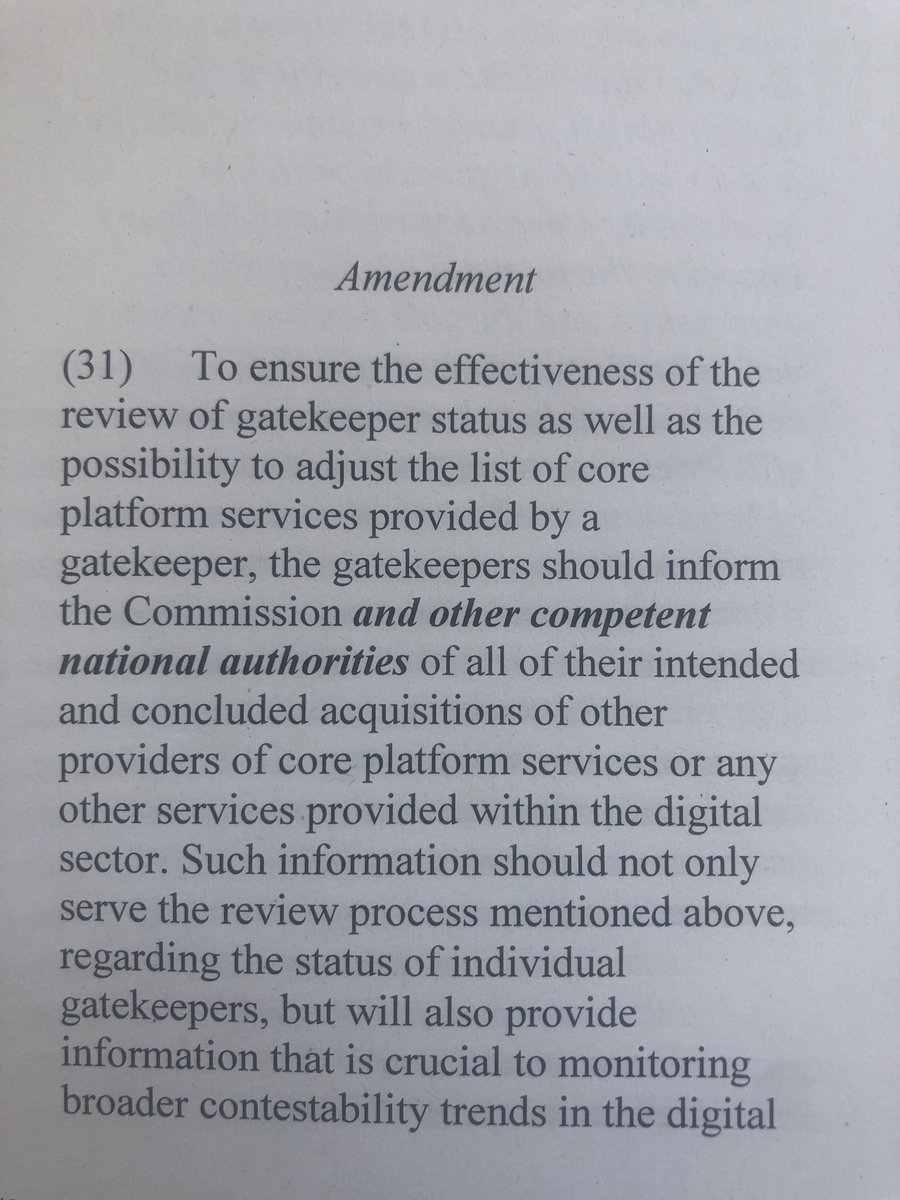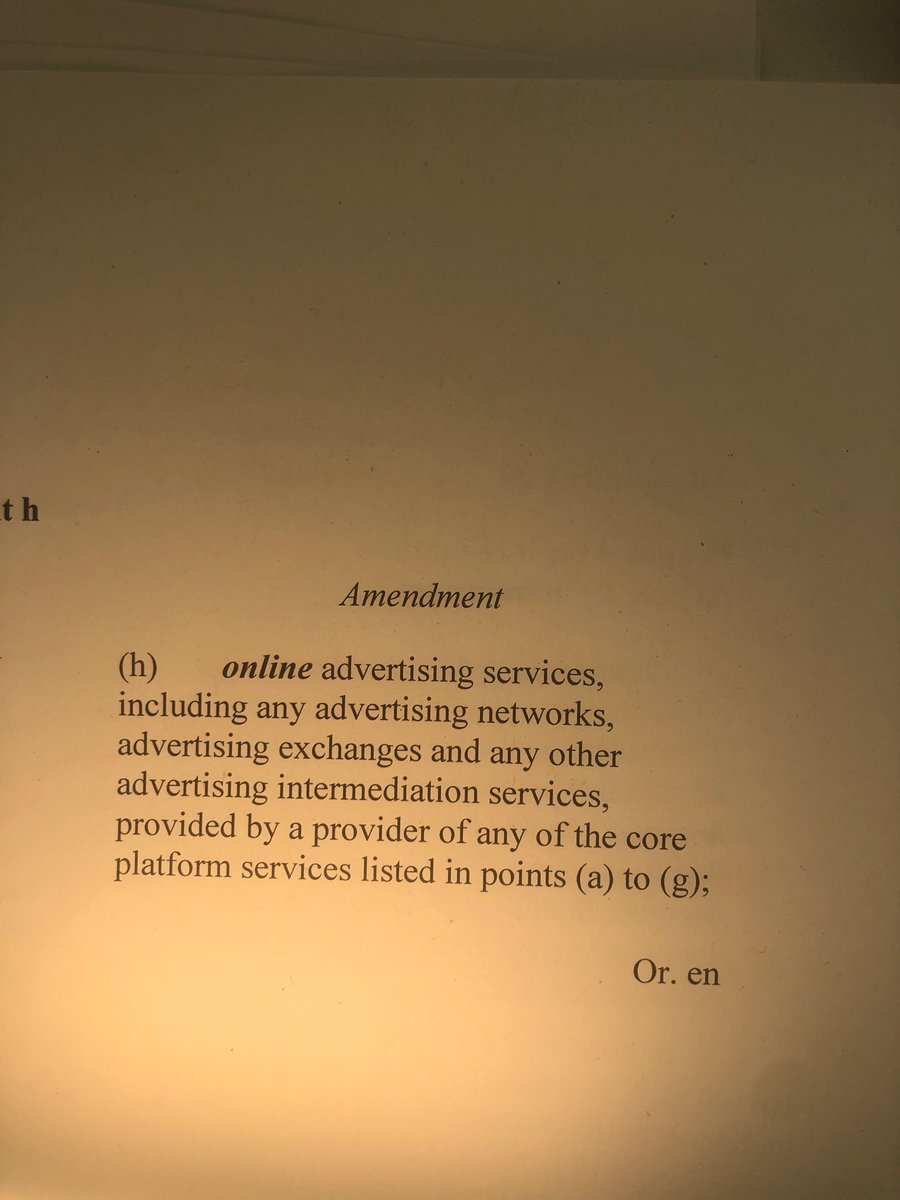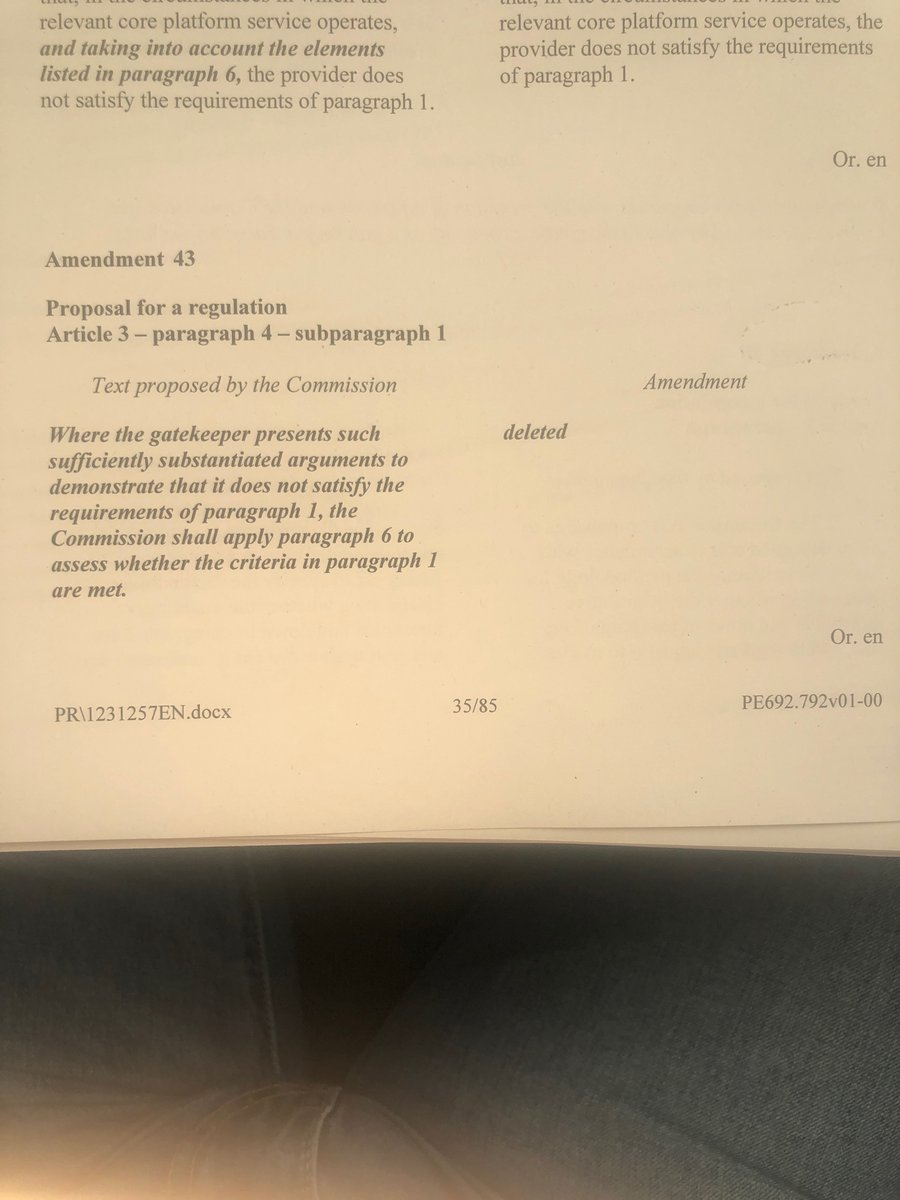Long thread w/ color commentary of IMCO amendments to draft #DMA. I focus on what struck eye, leaving aside the small stuff 1/n
Tightening of clause allowing presumptive gatekeeper to escape designation => “exceptional circumstances” and “compelling” evidence 2/n 

Anti circumvention now phrased in object and effect terms. Good luck w/ that. Lawyering alert w/ open crack for litigation here 4/n 

Prohibition of data combination implies duty to supply alternative service w/ equivalent quality to end users 5/n 

That’s interesting: is this suggesting that gatekeeper can lawfully restrain business users distribution practices when end users have not been fully monetised 6/n 

Now this is quite substantial. We see here a requirement of functional separation. Can of worms, bc unclear at what level of software integration this cuts: OS/app stores; market place/hardware; app stores/apps???? 8/n 

Shout out to my friend @georgionomix whose idea of in situ access makes the cut here 9/n 

No need to specify a test of non compliance, perhaps to avoid lengthy arguments w/ gatekeepers’ lawyers 11/n 

Invitation to include voice assistants in near future. Advisory role mainly. No much 🦷 but necessary concession to Member States I guess 12/n 

Great national courts explicitly mentioned, as if there were doubts, and clear mention to cooperation mechanisms with EC 14/n 

The Booking.com exemption 17/n 

Need for speed. Fast procedure requires to consider 1 month enough to issue designation decision 18/n 

Big cuts to article 6, and transfers to art 5, limiting opportunities for dialogue on implementation 22/n 

Duty to inform MS authorities of proposed concentrations by gatekeepers. Welcome to multi filing land. Non Brussels practicing lawyers say 🙏 too 27/n 

Ok so no breakups provided for, but amendment seeks to eliminate the principle of structural remedies as last resort 29/n 

No space for commitments under the DMA => it’s all self executing. Why negotiate a tailored application? 30/n 

Little inconsistency here. Amendments provide for formulation of guidelines but said before that all was self executing under DMA 33/n 

Bottom line: shorter timelines, less opportunities for dialogue in administrative proceedings - mandatory presumptions, larger art 5, narrower set of admissible justifications, suppression of commitments -, bigger role, yet soft one, for Member States authorities and courts END
• • •
Missing some Tweet in this thread? You can try to
force a refresh

































